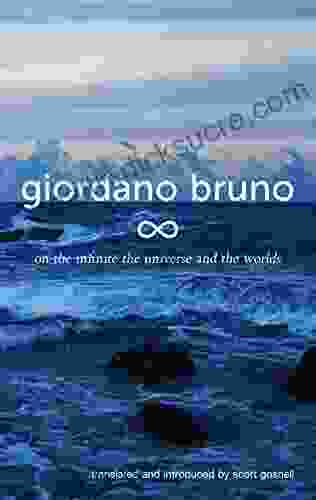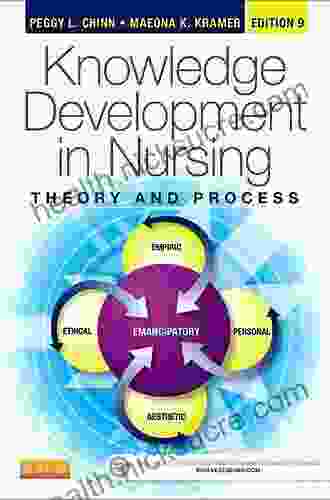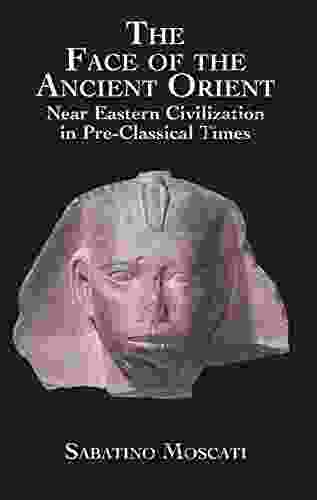Five Cosmological Dialogues: Collected Works of Giordano Bruno

In the annals of science and philosophy, few works have had as profound an impact as Giordano Bruno's Five Cosmological Dialogues. Published in 1584, these dialogues represented a watershed moment in the intellectual history of humanity, challenging the prevailing geocentric worldview and ushering in a new era of scientific inquiry. This comprehensive analysis delves into the key ideas presented in the Five Cosmological Dialogues, exploring their significance and their lasting impact on our understanding of the universe.
4.6 out of 5
| Language | : | English |
| File size | : | 1104 KB |
| Text-to-Speech | : | Enabled |
| Screen Reader | : | Supported |
| Enhanced typesetting | : | Enabled |
| Word Wise | : | Enabled |
| Print length | : | 232 pages |
| Lending | : | Enabled |
Challenging the Geocentric Paradigm
At the time of Bruno's writing, the prevailing cosmological model was the geocentric theory, which placed Earth at the center of the universe and all other celestial bodies, including the sun, moon, stars, and planets, orbiting around it. This theory had been accepted as dogma for centuries, with its roots in the teachings of Aristotle and Ptolemy.
Bruno's Five Cosmological Dialogues boldly challenged this geocentric paradigm, arguing instead for a heliocentric model, in which the sun is at the center of the solar system and the planets, including Earth, orbit around it. This heliocentric theory was not entirely new, having been proposed by Aristarchus of Samos in the 3rd century BC, but it had been largely ignored or dismissed by subsequent thinkers.
Bruno's dialogues provided a comprehensive and persuasive case for the heliocentric model, drawing on both astronomical observations and philosophical reasoning. He argued that the sun, as the largest and brightest celestial body, was the most likely candidate to be the center of the solar system. He also pointed out that the heliocentric model could better explain the observed motions of the planets, particularly their retrograde motion.
The Infinity of the Universe
Another groundbreaking idea presented in the Five Cosmological Dialogues is the infinity of the universe. Bruno argued that the universe is not finite, as had been traditionally believed, but rather extends infinitely in all directions. This concept of an infinite universe was a radical departure from the prevailing view that the universe was enclosed within a finite sphere of fixed stars.
Bruno's arguments for the infinity of the universe were based on both philosophical and empirical grounds. Philosophically, he argued that an infinite universe is more consistent with the notion of a perfect and all-powerful creator. An infinite universe would allow for an infinite number of possible worlds, each with its own unique characteristics.
Empirically, Bruno pointed to the fact that there is no evidence to suggest that the universe is finite. He argued that the stars, which are visible to the naked eye, are likely just a small fraction of the total number of stars in the universe. He also suggested that there may be other planets, beyond our solar system, that are home to life.
The Plurality of Worlds
Closely related to the idea of an infinite universe is the concept of the plurality of worlds. Bruno argued that if the universe is infinite, then it is likely that there are an infinite number of other worlds similar to our own. These other worlds may be inhabited by intelligent beings, and they may have their own unique cultures and civilizations.
Bruno's belief in the plurality of worlds was based on both scientific and philosophical reasoning. Scientifically, he pointed out that there is no evidence to suggest that Earth is unique or special in any way. There are countless other planets in the universe, and it is reasonable to assume that some of them may be capable of supporting life.
Philosophically, Bruno argued that the plurality of worlds is a necessary consequence of an infinite universe. If the universe is infinite, then there must be an infinite number of possible configurations of matter. This would include an infinite number of worlds, each with its own unique characteristics.
Metaphysical Naturalism
Bruno's Five Cosmological Dialogues are not just about astronomy and cosmology. They also contain a profound metaphysical system that Bruno called metaphysical naturalism. Metaphysical naturalism is the belief that the universe is composed entirely of matter and that there is no separate or transcendent spiritual realm.
Bruno argued that the universe is a single, unified substance that is both material and divine. He rejected the traditional dualism of mind and body, arguing that all things are interconnected and interdependent.
Bruno's metaphysical naturalism was based on the idea that the universe is a living organism. He believed that the universe is constantly evolving and changing, and that it is governed by natural laws rather than by divine intervention.
Divine Immanence
Closely related to Bruno's metaphysical naturalism is his concept of divine immanence. Bruno believed that God is not a transcendent being who exists outside of the universe, but rather that God is immanent in the universe, present in all things.
Bruno argued that the universe is itself divine, and that all things within the universe, from the smallest atoms to the largest stars, are manifestations of the divine. He believed that the universe is a living, breathing organism, and that God is the life-force that animates it.
Pantheism
Bruno's belief in divine immanence led him to be labeled a pantheist, although he rejected the term, preferring instead to call himself a "naturalist." Pantheism is the belief that God is identical with the universe, and that there is no separate or transcendent divine being. Bruno's pantheism was based on the idea that the universe is a living organism, and that God is the life-force that animates it.
Bruno argued that the universe is itself divine, and that all things within the universe are manifestations of the divine. He believed that the universe is a living, breathing organism, and that God is the life-force that animates it.
Hermeticism and Neoplatonism
Bruno's Five Cosmological Dialogues are also heavily influenced by Hermeticism and Neoplatonism. Hermeticism is a mystical tradition based on the teachings of Hermes Trismegistus, a legendary Egyptian sage. Hermeticism emphasizes the unity of all things and the importance of self-knowledge.
Neoplatonism is a philosophical system that was developed by Plotinus in the 3rd century AD. Neoplatonism emphasizes the importance of the One, which is the ultimate source of all reality. Neoplatonists believed that the One is ineffable and transcendent, but that it can be experienced through contemplation.
Bruno's Five Cosmological Dialogues synthesize ideas from Hermeticism and Neoplatonism to create a unique and comprehensive metaphysical system. Bruno believed that the universe is a living organism, and that God is the life-force that animates it. He also believed that the universe is a manifestation of the One, and that it can be experienced through contemplation.
Impact on Science and Philosophy
Giordano Bruno's Five Cosmological Dialogues had a profound impact on the history of science and philosophy. Bruno's heliocentric theory and his belief in the infinity of the universe helped to pave the way for the scientific revolution of the 17th century. His metaphysical naturalism and his concept of divine immanence challenged the traditional dualism of mind and body and laid the groundwork for modern materialism.
Bruno's work was also influential in the development of modern philosophy. His emphasis on individual
4.6 out of 5
| Language | : | English |
| File size | : | 1104 KB |
| Text-to-Speech | : | Enabled |
| Screen Reader | : | Supported |
| Enhanced typesetting | : | Enabled |
| Word Wise | : | Enabled |
| Print length | : | 232 pages |
| Lending | : | Enabled |
Do you want to contribute by writing guest posts on this blog?
Please contact us and send us a resume of previous articles that you have written.
 Fiction
Fiction Non Fiction
Non Fiction Romance
Romance Mystery
Mystery Thriller
Thriller SciFi
SciFi Fantasy
Fantasy Horror
Horror Biography
Biography Selfhelp
Selfhelp Business
Business History
History Classics
Classics Poetry
Poetry Childrens
Childrens Young Adult
Young Adult Educational
Educational Cooking
Cooking Travel
Travel Lifestyle
Lifestyle Spirituality
Spirituality Health
Health Fitness
Fitness Technology
Technology Science
Science Arts
Arts Crafts
Crafts DIY
DIY Gardening
Gardening Petcare
Petcare Allen M Hornblum
Allen M Hornblum Courtney Summers
Courtney Summers Kristine Hudson
Kristine Hudson Kaitlyn Hill
Kaitlyn Hill Jean Jacques Chevron
Jean Jacques Chevron Scott Smith
Scott Smith Claude Levi Strauss
Claude Levi Strauss Bogdan Ivanov
Bogdan Ivanov Rex L Forehand
Rex L Forehand D C Fergerson
D C Fergerson John Lloyd
John Lloyd Don Miguel Ruiz
Don Miguel Ruiz Lennard Bickel
Lennard Bickel Carlo Ancelotti
Carlo Ancelotti Kim Heacox
Kim Heacox Sean Patrick
Sean Patrick Ben Greenfield
Ben Greenfield James Ferguson
James Ferguson Lynn Rush
Lynn Rush Milton Gussow
Milton Gussow Aubrey Gordon
Aubrey Gordon Robert Penn Warren
Robert Penn Warren Bill Varney Jr
Bill Varney Jr John Novosel Jr
John Novosel Jr Bill Hendricks
Bill Hendricks John C Lennox
John C Lennox Cinda Williams Chima
Cinda Williams Chima Signe Pike
Signe Pike Allen J Christenson
Allen J Christenson Alivia Stephens
Alivia Stephens Dennis Jarecke
Dennis Jarecke Clive Cussler
Clive Cussler William B Helmreich
William B Helmreich Susan Neiman
Susan Neiman Katy Milkman
Katy Milkman Emily Parke Chase
Emily Parke Chase Robin Riley
Robin Riley Allen G Taylor
Allen G Taylor Linda Barrett Osborne
Linda Barrett Osborne Arthur Aughey
Arthur Aughey Jennifer E Smith
Jennifer E Smith Mary Elizabeth O Brien
Mary Elizabeth O Brien Susan Ware
Susan Ware Mark Dice
Mark Dice Franz Kellermann
Franz Kellermann Christopher Bruhn
Christopher Bruhn William A Haviland
William A Haviland Frank Christianson
Frank Christianson Debra L Martin
Debra L Martin Allen O Bannon
Allen O Bannon C S Wilde
C S Wilde John Kavanagh
John Kavanagh Gary Sizer
Gary Sizer Maurice Isserman
Maurice Isserman Toru Toba
Toru Toba Laerke Recht
Laerke Recht Apryl Baker
Apryl Baker Kate Wood
Kate Wood Kara Lawrence
Kara Lawrence Ed Robinson
Ed Robinson Mike Zimmerman
Mike Zimmerman Kevin West
Kevin West Joel Thomas Chopp
Joel Thomas Chopp Douglas Whynott
Douglas Whynott Sid Roth
Sid Roth C Calvin Jones
C Calvin Jones Lewis Carroll
Lewis Carroll Marti Olsen Laney
Marti Olsen Laney Allen N Mendler
Allen N Mendler Ethem Mining
Ethem Mining Chip Coffey
Chip Coffey Sheena Byrom
Sheena Byrom Natasha Devon
Natasha Devon Jimena Canales
Jimena Canales Matt Hart
Matt Hart Frank Delaney
Frank Delaney Rodney Ford
Rodney Ford Robert S Witte
Robert S Witte Jeff Brent
Jeff Brent Jenara Nerenberg
Jenara Nerenberg Rene Almeling
Rene Almeling Eugen Herrigel
Eugen Herrigel James Kipling
James Kipling Richard H Thaler
Richard H Thaler Kevin Leman
Kevin Leman Konnie Wong
Konnie Wong Lydia Sherrer
Lydia Sherrer Rick Johnson
Rick Johnson Paul D Brinkman
Paul D Brinkman Pamela Douglas
Pamela Douglas Ken Cohen
Ken Cohen Jason Durham
Jason Durham Chris Lear
Chris Lear Catherine Gildiner
Catherine Gildiner James Sieckmann
James Sieckmann Michael Shermer
Michael Shermer Chris Chambers
Chris Chambers Mark Kistler
Mark Kistler Holly Homer
Holly Homer Edmund Richardson
Edmund Richardson Peter Mark Adams
Peter Mark Adams Daniel Stewart
Daniel Stewart Milt Rosko
Milt Rosko Jay Blahnik
Jay Blahnik Annabeth Headrick
Annabeth Headrick Amby Burfoot
Amby Burfoot Molly Forbes
Molly Forbes Frederick Mosteller
Frederick Mosteller Dr Fiona Mcpherson
Dr Fiona Mcpherson Peter Hollins
Peter Hollins Mike Wallace
Mike Wallace Phil Hornshaw
Phil Hornshaw Pass Your Class
Pass Your Class Linda Greenlaw
Linda Greenlaw Allen R Angel
Allen R Angel Simone Milasas
Simone Milasas Daniel J Siegel
Daniel J Siegel Kimberly Brown
Kimberly Brown Lynn Acton
Lynn Acton Peter Van Der Linden
Peter Van Der Linden Shawn D Madden
Shawn D Madden Christina Hoff Sommers
Christina Hoff Sommers Roy Macskimming
Roy Macskimming Bryan Goodwin
Bryan Goodwin Joseph Fort Newton
Joseph Fort Newton Greg Moran
Greg Moran Sarah P Morris
Sarah P Morris Henry Cloud
Henry Cloud Chris Cannon
Chris Cannon Jonathan E Steinhart
Jonathan E Steinhart Deborah Macnamara Phd
Deborah Macnamara Phd Charles Conn
Charles Conn David Hurst Thomas
David Hurst Thomas Liz Evers
Liz Evers Edmund G R Kraal
Edmund G R Kraal Alexander Clarke
Alexander Clarke Kota Nozomi
Kota Nozomi Walter Isaacson
Walter Isaacson Tom Daley
Tom Daley Tim Baker
Tim Baker Allen Dulles
Allen Dulles Carla Mooney
Carla Mooney Suzanne Nottingham
Suzanne Nottingham Jonathan St B T Evans
Jonathan St B T Evans Dennis Overbye
Dennis Overbye Kelsey Banfield
Kelsey Banfield Travis Jeffery
Travis Jeffery Dr Ron M Horner
Dr Ron M Horner Allen Stroud
Allen Stroud Chris Mulder
Chris Mulder Judith Rich Harris
Judith Rich Harris Tress Bowen
Tress Bowen Karen Murphy
Karen Murphy Norrinda Brown Hayat
Norrinda Brown Hayat Matthew Syed
Matthew Syed Allan Hall
Allan Hall Jennifer Waldburger
Jennifer Waldburger Anna Costaras
Anna Costaras Elce Junior Lauriston
Elce Junior Lauriston Bruce Tremper
Bruce Tremper Annie F Downs
Annie F Downs Jacqueline H Wolf
Jacqueline H Wolf Carrot Quinn
Carrot Quinn Dan Miller
Dan Miller Eickhel Mendoza
Eickhel Mendoza Raymond Turner
Raymond Turner Scott Graham
Scott Graham Rachel Caine
Rachel Caine Elliot Aronson
Elliot Aronson Jim Cobb
Jim Cobb Tim Rappleye
Tim Rappleye Dave Pelz
Dave Pelz J R R Tolkien
J R R Tolkien Marianne Williamson
Marianne Williamson Iain Gately
Iain Gately John Macinnes
John Macinnes Nikki Solano
Nikki Solano Meritxell Castells
Meritxell Castells Barbara De Angelis
Barbara De Angelis J Richard Gott
J Richard Gott Brian Treanor
Brian Treanor Robert Green
Robert Green Linda S Jones
Linda S Jones Diana Korte
Diana Korte Allen Carr
Allen Carr Kaylee Cole
Kaylee Cole Aly Raisman
Aly Raisman Alison Lighthall Miller
Alison Lighthall Miller Ashley D Kendall
Ashley D Kendall Jdmission Senior Consultants
Jdmission Senior Consultants Kathleen Bachynski
Kathleen Bachynski Jeff Burlingame
Jeff Burlingame Rhonda Huettenmueller
Rhonda Huettenmueller Allison Tyson
Allison Tyson Dan Abrahams
Dan Abrahams Tim Roughgarden
Tim Roughgarden Allistair Mccaw
Allistair Mccaw Jack Smith
Jack Smith Joosr
Joosr John Bul Dau
John Bul Dau Eddie Guerrero
Eddie Guerrero Michael Reist
Michael Reist Aliza Kelly
Aliza Kelly Joe Kenn
Joe Kenn Jim Bell
Jim Bell Grace Lindsay
Grace Lindsay Michaelbrent Collings
Michaelbrent Collings Marlin M Mackenzie
Marlin M Mackenzie James Patterson
James Patterson Kwame Onwuachi
Kwame Onwuachi Tim Hodkinson
Tim Hodkinson Richard M Van Gaasbeek
Richard M Van Gaasbeek Wendelin Van Draanen
Wendelin Van Draanen Pasco Valana
Pasco Valana Charlotte Runcie
Charlotte Runcie Rebecca St James
Rebecca St James David Eagleman
David Eagleman Paul S Auerbach
Paul S Auerbach Vivian Gornick
Vivian Gornick Stuart Holmes Coleman
Stuart Holmes Coleman Pottermore Publishing
Pottermore Publishing Matthieu Auzanneau
Matthieu Auzanneau Douglas Nicholas
Douglas Nicholas William W Dressler
William W Dressler David F Anderson
David F Anderson Roger Bannister
Roger Bannister Robert M Sapolsky
Robert M Sapolsky The School Of Life
The School Of Life Sam Jefferson
Sam Jefferson Jen Torborg
Jen Torborg Allan House
Allan House Allison Mcdonald Ace
Allison Mcdonald Ace Giuseppe Mascoli
Giuseppe Mascoli David Hancock
David Hancock Steve J Martin
Steve J Martin Brian Lopes
Brian Lopes Lynn Stafford Yilmaz
Lynn Stafford Yilmaz Linda A Curtis
Linda A Curtis Allison Arevalo
Allison Arevalo Bright Summaries
Bright Summaries Rowena Murray
Rowena Murray Eric Lemarque
Eric Lemarque Vitalis I Valentine
Vitalis I Valentine Noor Ain
Noor Ain Ronald Hutton
Ronald Hutton Jeff Gordon
Jeff Gordon Dennis Georgatos
Dennis Georgatos Mary Bergin
Mary Bergin Sylvia Larsen
Sylvia Larsen Y R Davis
Y R Davis Alistair Cooke
Alistair Cooke Danica G Hays
Danica G Hays Lionel Cruzille
Lionel Cruzille Greg Henry
Greg Henry Priya Ardis
Priya Ardis Rex Allen Jones Ii
Rex Allen Jones Ii Alicia F Lieberman
Alicia F Lieberman Mandi Hickman
Mandi Hickman Debi Pearl
Debi Pearl Greg Strandberg
Greg Strandberg Grace E Stewart
Grace E Stewart Robert Kiltz
Robert Kiltz S Allen Counter
S Allen Counter Jennifer Louden
Jennifer Louden Alison Gervais
Alison Gervais Kenneth Igiri
Kenneth Igiri Patrick Stewart
Patrick Stewart Liz Clark
Liz Clark Jim Mancuso
Jim Mancuso 10th Edition Kindle Edition
10th Edition Kindle Edition Hilda Jarman Muir
Hilda Jarman Muir Brett Lee Scott
Brett Lee Scott Carolyn Shearlock
Carolyn Shearlock Laura Randall
Laura Randall Allan Kardec
Allan Kardec Charles J Robinson
Charles J Robinson Petr Zima
Petr Zima Karen Wambach
Karen Wambach Selene Yeager
Selene Yeager Marc Bubbs
Marc Bubbs Monique Joiner Siedlak
Monique Joiner Siedlak Michelle Nijhuis
Michelle Nijhuis Kate Mcmahon
Kate Mcmahon Marie Osmond
Marie Osmond Meredith L Jacobs
Meredith L Jacobs Alison Pearlman
Alison Pearlman Ryan Spaeder
Ryan Spaeder Raychelle Cassada Lohmann
Raychelle Cassada Lohmann Jon S Bailey
Jon S Bailey Stephen Haddelsey
Stephen Haddelsey Bret Hart
Bret Hart Robbin Gregory
Robbin Gregory Ann C Logue
Ann C Logue Fluent In Korean
Fluent In Korean Paul Green
Paul Green Joe Vasicek
Joe Vasicek Grant Petersen
Grant Petersen Leah Vanderveldt
Leah Vanderveldt Etienne Noumen
Etienne Noumen Allan Trevor
Allan Trevor Karen Bonnell
Karen Bonnell Michele Stanten
Michele Stanten Somaiya Daud
Somaiya Daud Nick Riley
Nick Riley Gavin Fairbairn
Gavin Fairbairn Saint Teresa Of Avila
Saint Teresa Of Avila Jorge Muniz
Jorge Muniz Peggy L Chinn
Peggy L Chinn Tami Overhauser
Tami Overhauser Ryan Hall
Ryan Hall Ian Westermann
Ian Westermann Lisa M Rose
Lisa M Rose Chris Fox
Chris Fox Lsatmax Lsat Prep
Lsatmax Lsat Prep Jim C Hines
Jim C Hines Stephen E Flowers
Stephen E Flowers Pure Calisthenics
Pure Calisthenics Cy Tymony
Cy Tymony Alisha J Brown
Alisha J Brown Allison Williams
Allison Williams Marc Vachon
Marc Vachon Lexie Scott
Lexie Scott Paul J Kosmin
Paul J Kosmin Andrie De Vries
Andrie De Vries Ron Merly
Ron Merly Janet E Wall
Janet E Wall W E Fairbairn
W E Fairbairn Jeffrey E Young
Jeffrey E Young Dr Nadine Sinclair
Dr Nadine Sinclair Kate Clifford Larson
Kate Clifford Larson Kim Liggett
Kim Liggett Eli Saslow
Eli Saslow Brenda Gable
Brenda Gable Frederick Courteney Selous
Frederick Courteney Selous Gregory Cochran
Gregory Cochran Nevin Martell
Nevin Martell Roy Clark
Roy Clark John Michael Kelly
John Michael Kelly Brenda Boyd
Brenda Boyd Amy Saltzman
Amy Saltzman Brian Boone
Brian Boone Sabatino Moscati
Sabatino Moscati Todd Wilbur
Todd Wilbur James Fallows
James Fallows Allen Everett
Allen Everett Olajumoke Adenowo
Olajumoke Adenowo The Editors Of Outside Magazine
The Editors Of Outside Magazine Dr Danielle Ward
Dr Danielle Ward William Stott
William Stott Carlos Castaneda
Carlos Castaneda Despina Meris
Despina Meris Theodore B Sauselein
Theodore B Sauselein Glenn Tinnin
Glenn Tinnin Tami Asars
Tami Asars Valerie Gilpeer
Valerie Gilpeer Trae Dorn
Trae Dorn Thomas R Verny
Thomas R Verny John Bargh Ph D
John Bargh Ph D Joseph Harkreader
Joseph Harkreader George Buehler
George Buehler Carla Simpson
Carla Simpson Alicia Thomas Woolf
Alicia Thomas Woolf Anna Leinberger
Anna Leinberger Susan Kuklin
Susan Kuklin Harald B Teicher
Harald B Teicher Bill Horn
Bill Horn John Shewey
John Shewey Karen Blumenthal
Karen Blumenthal Randy Russell
Randy Russell Alistair Brownlee
Alistair Brownlee Joel S Owen
Joel S Owen Allison Alexy
Allison Alexy Helen Macdonald
Helen Macdonald Alicia Jasinska
Alicia Jasinska Casi Mclean
Casi Mclean Alistair Higham
Alistair Higham Novak Djokovic
Novak Djokovic Lisa Marshall
Lisa Marshall Alison Scott Wright
Alison Scott Wright Judith Mckay
Judith Mckay Perry Lefko
Perry Lefko Grant S Lipman
Grant S Lipman John Hughes
John Hughes Robert Taylor
Robert Taylor Mourad Boufadene
Mourad Boufadene Allan G Bluman
Allan G Bluman Anil Seth
Anil Seth Leonard Shlain
Leonard Shlain Joshua Elliot James
Joshua Elliot James Allison Schrager
Allison Schrager Muthukumaran Mani
Muthukumaran Mani Amy Wenzel
Amy Wenzel Victor Canning
Victor Canning Jeff Hawkins
Jeff Hawkins L H Nicole
L H Nicole Don Harris
Don Harris Sportsman S Connection
Sportsman S Connection Stephen R Covey
Stephen R Covey Joe Sparrow
Joe Sparrow Alan Watts
Alan Watts Gail Steketee
Gail Steketee Tiger Woods
Tiger Woods Paul Schullery
Paul Schullery Sharon Weinberger
Sharon Weinberger Allen Morris Jones
Allen Morris Jones Segun Adebajo
Segun Adebajo P Schreiber
P Schreiber Jared Cohen
Jared Cohen Randy Olson
Randy Olson Meredith Russo
Meredith Russo Mara Krechevsky
Mara Krechevsky George M Johnson
George M Johnson Eric Naguski
Eric Naguski Beth Cavenaugh
Beth Cavenaugh Allison Dolan
Allison Dolan Alina A Von Davier
Alina A Von Davier Jim Downs
Jim Downs Winston Churchill
Winston Churchill Mark Beauregard
Mark Beauregard Itzik Ben Gan
Itzik Ben Gan Eric Newby
Eric Newby Alison Palmer
Alison Palmer P J Richards
P J Richards Jonathan Moeller
Jonathan Moeller Richard Kaczynski
Richard Kaczynski Philip Gosse
Philip Gosse Justin J Exner
Justin J Exner Christian Asonye
Christian Asonye W Edwards Deming
W Edwards Deming Sarah Grison
Sarah Grison Julie Currin
Julie Currin Rob Shelsky
Rob Shelsky Roy Shepard
Roy Shepard Felix Marks
Felix Marks Deborah Ann Davis
Deborah Ann Davis Myrna Blyth
Myrna Blyth Steven J Burton
Steven J Burton Edwin Amenta
Edwin Amenta Stuart A Kauffman
Stuart A Kauffman Robin Stevenson
Robin Stevenson Neely Spence Gracey
Neely Spence Gracey Maria Thompson Daviess
Maria Thompson Daviess Alexandra Amor
Alexandra Amor Giancarlo Lemmi
Giancarlo Lemmi Carl Paoli
Carl Paoli Neil Hayes
Neil Hayes James F Mckenzie
James F Mckenzie Godfrey Higgins
Godfrey Higgins Suzanne O Sullivan
Suzanne O Sullivan Jeremy Evans
Jeremy Evans Julie Morgenstern
Julie Morgenstern Chris Lundgren
Chris Lundgren Matthew Mccoy
Matthew Mccoy Vincent Schilling
Vincent Schilling Alison Aulakh
Alison Aulakh Daniel J Levitin
Daniel J Levitin Nick Karas
Nick Karas Daniel Mendelsohn
Daniel Mendelsohn Jim Rahtz
Jim Rahtz Teri Moser Woo
Teri Moser Woo Julie Schwietert
Julie Schwietert Shobi Nolan
Shobi Nolan Jim Cheney
Jim Cheney Tom Kelly
Tom Kelly Jason Padgett
Jason Padgett Andrew Kastor
Andrew Kastor Allan Phillips
Allan Phillips Arianna Brooks
Arianna Brooks Kenji Tokitsu
Kenji Tokitsu Gerd Gigerenzer
Gerd Gigerenzer Alister E Mcgrath
Alister E Mcgrath Joanna Foley Rd
Joanna Foley Rd Suzanne Alderson
Suzanne Alderson N B Hankes
N B Hankes Michael Fullan
Michael Fullan Judy Converse
Judy Converse Maria Hannay
Maria Hannay Gary Leland
Gary Leland Emma Shelford
Emma Shelford Mark F Sohn
Mark F Sohn Emily Thiede
Emily Thiede Josephine Perry
Josephine Perry Geoff Salmon
Geoff Salmon Mary Quinlan Mcgrath
Mary Quinlan Mcgrath Joe Kelly
Joe Kelly Bobby Clampett
Bobby Clampett Cate Stillman
Cate Stillman Erica Abbett
Erica Abbett Andrew Benfield
Andrew Benfield David M Killoran
David M Killoran Linda Martella Whitsett
Linda Martella Whitsett Dan Millman
Dan Millman Mian Majid Ali Afzal
Mian Majid Ali Afzal Tom Watson
Tom Watson The Dark Lords
The Dark Lords Naomi Kokoricha
Naomi Kokoricha Ronald E Mickens
Ronald E Mickens Allison Norfolk
Allison Norfolk Maria Rickert Hong
Maria Rickert Hong Tom Babin
Tom Babin
Light bulbAdvertise smarter! Our strategic ad space ensures maximum exposure. Reserve your spot today!
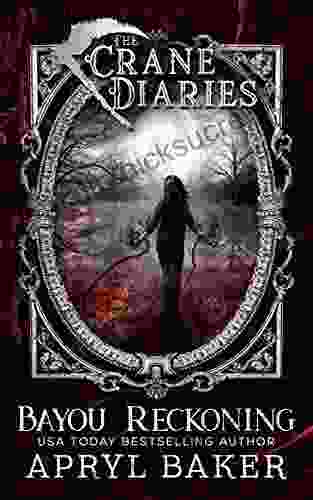
 Eddie PowellThe Crane Diaries: Bayou Reckoning - An Immersive Journey into the Heart of...
Eddie PowellThe Crane Diaries: Bayou Reckoning - An Immersive Journey into the Heart of...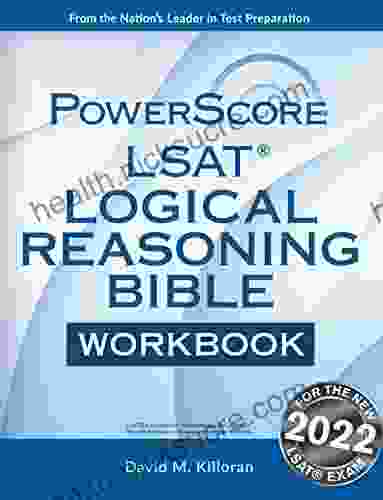
 Mason PowellUnveiling the Secrets to Flawless Analytical Reasoning with Powerscore LSAT...
Mason PowellUnveiling the Secrets to Flawless Analytical Reasoning with Powerscore LSAT... Robin PowellFollow ·10.6k
Robin PowellFollow ·10.6k Scott ParkerFollow ·18.3k
Scott ParkerFollow ·18.3k Winston HayesFollow ·10.3k
Winston HayesFollow ·10.3k Jerry WardFollow ·7.5k
Jerry WardFollow ·7.5k George Bernard ShawFollow ·4.6k
George Bernard ShawFollow ·4.6k Herbert CoxFollow ·4.2k
Herbert CoxFollow ·4.2k Fernando BellFollow ·8.2k
Fernando BellFollow ·8.2k Steve CarterFollow ·17.5k
Steve CarterFollow ·17.5k
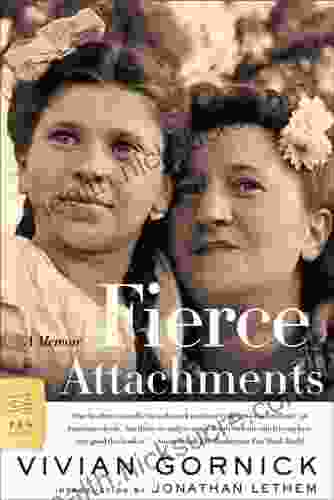
 Dominic Simmons
Dominic SimmonsFierce Attachments: A Memoir by Vivian Gornick - A...
Vivian Gornick's Fierce Attachments is a...

 Edison Mitchell
Edison MitchellPrimer for America's Favorite Wilderness: A Comprehensive...
In the vast...
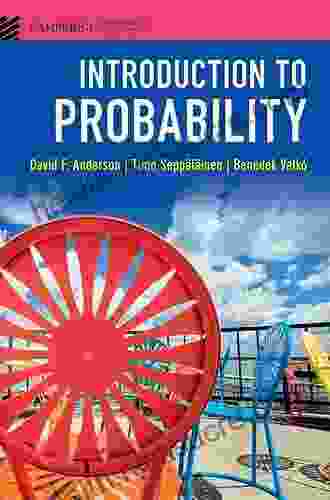
 Jan Mitchell
Jan MitchellIntroduction to Probability: A Comprehensive Guide for...
Probability is a crucial branch of...
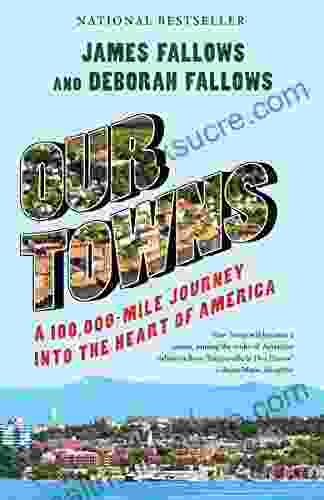
 Chuck Mitchell
Chuck Mitchell100,000 Mile Journey Into the Heart of America
In 2016, I embarked on a...

 Eddie Bell
Eddie BellHow Schools Around the World Are Inspiring Greatness One...
Education is the key...

 Quentin Powell
Quentin PowellJourney into the Heart of Alaska: Exploring the Majestic...
Alaska, the largest...
4.6 out of 5
| Language | : | English |
| File size | : | 1104 KB |
| Text-to-Speech | : | Enabled |
| Screen Reader | : | Supported |
| Enhanced typesetting | : | Enabled |
| Word Wise | : | Enabled |
| Print length | : | 232 pages |
| Lending | : | Enabled |


